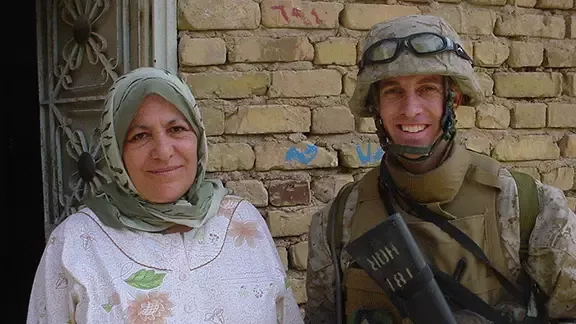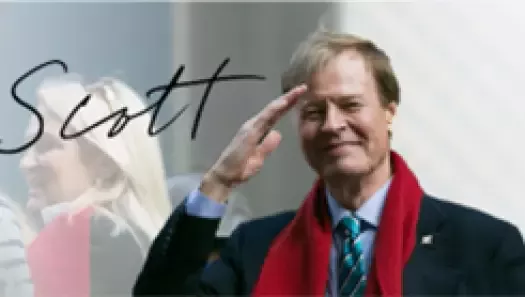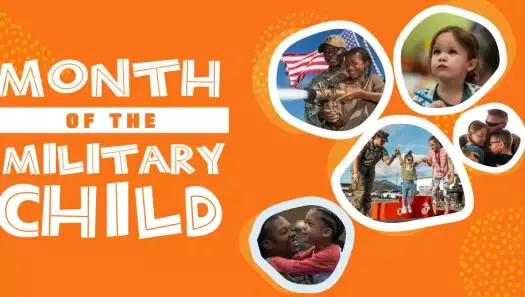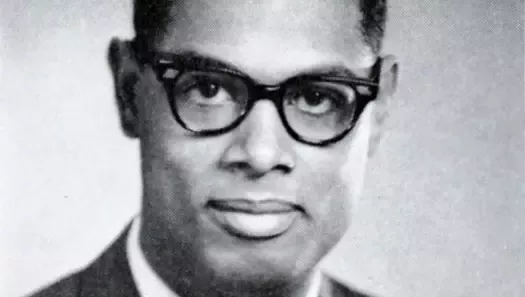WeSalute Awards
TopVet: Chris Perkins, Veterans on Wall Street

 When Lehman Brothers collapsed at the start of the 2008 financial crisis, Marine Veteran Captain Chris Perkins was on the ground floor unphased. “People were screaming and crying. I had just come back from combat - I had seen worse.”
When Lehman Brothers collapsed at the start of the 2008 financial crisis, Marine Veteran Captain Chris Perkins was on the ground floor unphased. “People were screaming and crying. I had just come back from combat - I had seen worse.”
The New Jersey native, who served in Iraq from 2004-2005, has created a successful career in finance after transitioning out of the military. He graduated from the US Naval Academy and was excited by the challenge of the Marines and the prospect of seeing the world. When 9/11 hit, his sister was impacted in the attacks.
“I realized then that I couldn’t get out (of the military) at that point,” he said, despite coming up on the end of his mandatory service. He volunteered to go to Iraq. “I was in a captain’s course and they tried to send me to Jackson, Mississippi but I convinced them to change my orders with someone else.” He served in downtown Ramadi during a very violent period, taking on many leadership roles.
When he began his transition to civilian life, he visited a friend who worked for Lehman Brothers in 2006. “They hired me on the spot as a transitioning veteran.” He was placed in the Associate Class, where typically only talent from the top MBA programs were chosen. Like many veterans, he said he had “incredible skills and life experience and I was used to leading in the most challenging of circumstances. But I needed to develop technical proficiency, so I would get up at 4am to study.” He took over for his boss when he quit after 18 months.
 “The moment you’re put into the military, you are taught how to lead. In industry it’s very difficult. So many folks are excellent at their job but never had any experience and are frankly scared to death of managing people. You’re taught how to manage and lead on day one of the military: being able to understand a mission and identity and galvanize a team.”
“The moment you’re put into the military, you are taught how to lead. In industry it’s very difficult. So many folks are excellent at their job but never had any experience and are frankly scared to death of managing people. You’re taught how to manage and lead on day one of the military: being able to understand a mission and identity and galvanize a team.”
Citigroup hired him soon after the collapse of his last job and he led several global teams there. He became interested in the innovation of the crypto space and in 2021 he joined CoinFund as President, which is a Web3 focused investment with venture and liquid capital. He is involved in the investment process, helps portfolio companies grow, and works on policy in front of Congress, amongst his other duties.
He had a revelation in 2009 while watching the State of the Union address. “Democrats and Republicans can only agree on two things: banks are bad and vets are good. I had this idea to bring the ethics of veterans to banks.”
He co-founded Veterans on Wall Street (VOWS) and brought several competing banks together in an industry wide effort to bring veterans into the business. They raised $1 million a year for a decade. More recently, he co-founded Veterans in Digital Assets (VIDA), where he seeks to bring more veterans into the crypto space and advises transitioning veterans to network like crazy.
 “Crypto stands to value from the skills veterans bring. Veterans stand to benefit from long lucrative careers. It’s good for both sides,” he said.
“Crypto stands to value from the skills veterans bring. Veterans stand to benefit from long lucrative careers. It’s good for both sides,” he said.
The values of veterans and the common desire to be something bigger than themselves are traits he touts. “The Marine Corps has the most incredible culture. How do you replicate that culture in business and make people passionate about what they’re building and the mission of the company? As you get more senior, culture is the most important thing. It’s a lesson I try to take wherever I’m working, to have empathy and understand your people.”



